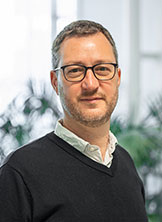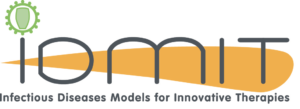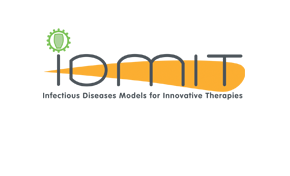Webinar COVID-19
Fighting COVID-19:
How Rodent and NHP Models Support COVID-19 Treatment Development
Speaker information
-

Nicolas Legrand
Ph.D. – In Vivo Lab & Study Unit Director, Oncodesign
Dr. Nicolas Legrand holds a MSc (1998) and a Ph.D. (2002) in Immunology from Pierre and Marie Curie University & Institut Pasteur in Paris. He worked at the Academisch Medisch Centrum in Amsterdam from 2003 until 2010 as research scientist, scientific advisor and finally co-investigator on the ‘Human Vaccine Consortium’ project funded by the Bill & Melinda Gates Foundation. In 2010, he joined AIMM Therapeutics in Amsterdam as scientific manager. He spent 7 years at Axenis as CSO then as Director of Immunulogy after the acquisition by GenOway, before joining Oncodesign in March 2020.
-

Roger Le Grand
Director, CEA IDMIT
Dr. Roger Le Grand is veterinarian (MDV in 1988) and holds a MSc (1989) in cell biology and a Ph.D. (1994) in immuno-virology from the University Paris V. In 1996, he joined The French Alternative Energies and Atomic Energy Commission (CEA) as permanent senior scientist, through to his current position head of Infectious Diseases Models for Innovative Therapies” department (IDMIT). His work is mainly based on the use of preclinical models, including non-human primate models, of human diseases; and the development of advanced technologies, and in vivo imaging in particular, with a continuing effort to translate findings in experimental models to the clinical practice.
Webinar abstract
Preclinical validation of an extended portfolio of prophylactic & therapeutic options against SARS-CoV-2-induced pathologies remains a major challenge for the scientific & medical community. In this context, the high value of several animal models of SARS-CoV-2 infection has been demonstrated to screen a variety of products such as vaccines, biologics or small molecules (repurposed drugs and new chemical entities). Still, choosing the right animal model might be challenging, based on various mode of actions and/or timing of action of the tested molecules.
In this webinar, our guest presenters will discuss several case studies to illustrate the features of rodent (golden Syrian hamster, human AC2-expressing mice) and non-human primate models, which provide different pathology settings (moderate vs. severe COVID). These examples should help the attendees in their decision process regarding valid COVID-19 model selection.
There are two main rodent models available to study the effects of potential COVID-19 treatments. SARS-CoV-2 infection of hamsters results in a moderate COVID-19 pathology (transient body weight loss, moderate lung inflammation) with rapid development of a protective immune response (cytokine release, neutralizing antibody response). Lethal models of SARS-CoV-2 infection, linked to severe cytokine-release syndrome, can be obtained using human ACE2-transgenic mouse models.
In the NHP SARS-CoV-2 infection, a large number of clinical, biological, virologic and immunological parameters can be monitored in a close-to-human setting. In all of these experimental models, prophylactic and therapeutic strategies can be evaluated, depending on each product-specific mode of action.
Register for this webinar to learn how to select the most appropriate COVID-19 animal model for preclinical studies.
Key takeaways
- SARS-CoV-2 infection of hamsters results in a moderate COVID pathology (transient body weight loss, moderate lung inflammation) with rapid development of a protective immune response (cytokine release, neutralizing antibody response).
- Lethal models of SARS-CoV-2 infection, linked to a severe cytokine-release syndrome, can be obtained using human ACE2-transgenic mouse models.
- In the non-human primate SARS-CoV-2 infection, a large number of clinical, biological, virological and immunological parameters can be monitored in a close-to-human setting.
- In all these experimental models, prophylactic and therapeutic strategies can be evaluated, depending on each product specific mode of action.
Audience summary
- Project managers
- Study Directors
- Chief Scientific Officer
- Scientists interested in COVID-19 therapeutic and prophylactic developments.
Company information

Oncodesign is a biopharmaceutical company dedicated to precision medicine, founded in 1995 by its current CEO and majority shareholder, and has been listed on Euronext Growth Market since April 2014. Its mission is the discovery of effective therapies to fight cancer and other diseases without therapeutic solutions. With its unique experience acquired by working with more than 1000 clients, including the world’s largest pharmaceutical companies, along with its unique technological platform combining Artificial Intelligence, state-otf-the-art medicinal chemistry, pharmacology, regulated bioanalysis, medical imaging, Oncodesign is able to select new therapeutic targets, design and develop potential preclinical candidates through to clinical phases. Oncodesign has configured its organization to offer innovative services to its customers and to license its proprietary molecules. Applied to kinase inhibitors, which represent a market estimated at over $65 billion by 2027 and accounting for almost 25% of the pharmaceutical industry’s R&D expenditure, Oncodesign’s technology has already enabled the targeting of several promising molecules with substantial therapeutic potential, in oncology and elsewhere, along with partnerships with global pharmaceutical groups. Oncodesign is based in Dijon, France, in the heart of the town’s university and hospital hub, and within the Paris-Saclay cluster. Oncodesign has 230 employees within 3 Business Units (BU): Service, Biotech, Artificial Intelligence and subsidiaries in Canada and the USA.

IDMIT stands for “Infectious Disease Models and Innovative Therapies” and is a national research and technology infrastructure for biology and health dedicated to preclinical research on infectious diseases. IDMIT is a unique center in Europe dedicated to infectious disease modelling and preclinical development. Specializing in non-human primates, IDMIT develops research programs on human vaccines and antimicrobial treatments and provides academic and industrial partners with access to state-of-the-art facilities and equipment for research and development projects.


